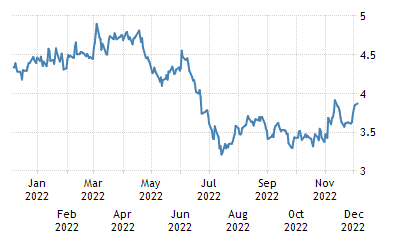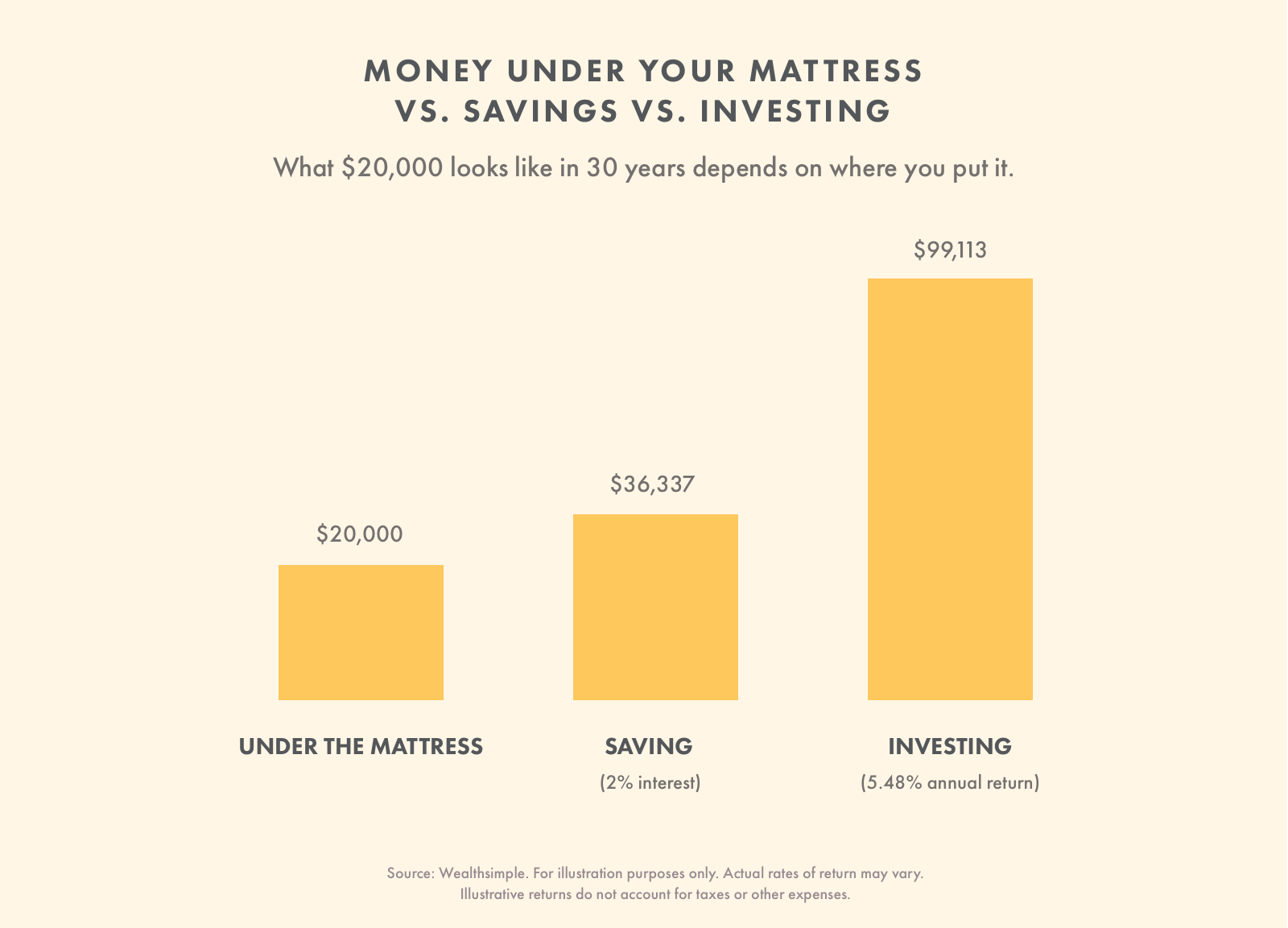
When investing for less than three years, you should consider Bonds, Money market accounts, and Stocks. You can read more if you aren't sure. Morgan Stanley is one of the world's largest financial services firms, founded in 1935. It employs more than 55,000 people worldwide in three divisions that serve governments, corporations and individuals. While it is difficult to choose which one of these investments is right for your needs, there are some things to keep in mind before you make an investment.
Investing less than 3 years
When deciding which investments to make, investors should consider the time horizon of their goal. Long-term investors have a greater chance of taking advantage of rising rates. Short-term investors typically get lower returns. If you are able to wait a few years for your money's growth, short-term investment can work. Although many investment options aren't suitable for short-term investors you should still consider the long-term benefits they can offer.

Bonds
Investors who seek to maximize their yields and avoid rising interest rates are attracted to short-duration bonds. Even though short-duration bonds may be appealing in this current interest rate environment you need to be cautious when selecting them. ETFs are one of the most effective strategies.
Money market accounts
As short-term investments, money market accounts can be a great way to stash your money. Money market deposit accounts are hybrids between savings and checking accounts and earn higher interest rates than savings accounts. They also have a limit on the amount of withdrawals and deposits that can be made per month. Money market accounts won't make your money; you will usually only get a few percent more than savings account rates and they pay less in inflation.
Stocks
When it comes to investing, the best short term investment stocks are those with high growth potential. These stocks are more volatile than average, and are generally issued by companies with a low market cap. They pay little dividends and are more volatile than the average stock. These stocks make great investments for short term speculators. Here are some short-term investments which offer high growth potential. Listed below are the five types of short-term investments to consider.

Certificates of deposit
Nearly all banks offer CDs. But the best ones are zero coupon certificates. This type pays interest on an amount fixed. CDs can be purchased for terms of three months up to 10 years. These certificates are not insured by the FDIC. They may not be available in your area. They are a good option for short-term investment. These strategies can help you avoid losing your investment.
FAQ
What is security?
Security is an asset that generates income for its owner. Shares in companies are the most popular type of security.
Different types of securities can be issued by a company, including bonds, preferred stock, and common stock.
The earnings per shared (EPS) as well dividends paid determine the value of the share.
You own a part of the company when you purchase a share. This gives you a claim on future profits. You will receive money from the business if it pays dividends.
Your shares can be sold at any time.
How do you invest in the stock exchange?
You can buy or sell securities through brokers. A broker buys or sells securities for you. Trades of securities are subject to brokerage commissions.
Brokers usually charge higher fees than banks. Because they don't make money selling securities, banks often offer higher rates.
A bank account or broker is required to open an account if you are interested in investing in stocks.
Brokers will let you know how much it costs for you to sell or buy securities. He will calculate this fee based on the size of each transaction.
Ask your broker about:
-
To trade, you must first deposit a minimum amount
-
whether there are additional charges if you close your position before expiration
-
What happens if you lose more that $5,000 in a single day?
-
How many days can you keep positions open without having to pay taxes?
-
What you can borrow from your portfolio
-
whether you can transfer funds between accounts
-
How long it takes for transactions to be settled
-
How to sell or purchase securities the most effectively
-
How to Avoid Fraud
-
How to get assistance if you are in need
-
If you are able to stop trading at any moment
-
If you must report trades directly to the government
-
Reports that you must file with the SEC
-
whether you must keep records of your transactions
-
If you need to register with SEC
-
What is registration?
-
How does it impact me?
-
Who needs to be registered?
-
When do I need registration?
Are bonds tradeable
Yes they are. You can trade bonds on exchanges like shares. They have been for many, many years.
You cannot purchase a bond directly through an issuer. They can only be bought through a broker.
This makes buying bonds easier because there are fewer intermediaries involved. This also means that if you want to sell a bond, you must find someone willing to buy it from you.
There are several types of bonds. There are many types of bonds. Some pay regular interest while others don't.
Some pay interest quarterly while others pay an annual rate. These differences allow bonds to be easily compared.
Bonds are very useful when investing money. In other words, PS10,000 could be invested in a savings account to earn 0.75% annually. The same amount could be invested in a 10-year government bonds to earn 12.5% interest each year.
You could get a higher return if you invested all these investments in a portfolio.
What is the difference between stock market and securities market?
The whole set of companies that trade shares on an exchange is called the securities market. This includes options, stocks, futures contracts and other financial instruments. Stock markets can be divided into two groups: primary or secondary. The NYSE (New York Stock Exchange), and NASDAQ (National Association of Securities Dealers Automated Quotations) are examples of large stock markets. Secondary stock markets are smaller exchanges where investors trade privately. These include OTC Bulletin Board, Pink Sheets and Nasdaq SmallCap market.
Stock markets are important for their ability to allow individuals to purchase and sell shares of businesses. The value of shares is determined by their trading price. The company will issue new shares to the general population when it goes public. These newly issued shares give investors dividends. Dividends can be described as payments made by corporations to shareholders.
Stock markets serve not only as a place for buyers or sellers but also as a tool for corporate governance. Shareholders elect boards of directors that oversee management. Boards make sure managers follow ethical business practices. If a board fails in this function, the government might step in to replace the board.
How are securities traded
The stock market allows investors to buy shares of companies and receive money. Investors can purchase shares of companies to raise capital. Investors can then sell these shares back at the company if they feel the company is worth something.
The price at which stocks trade on the open market is determined by supply and demand. When there are fewer buyers than sellers, the price goes up; when there are more buyers than sellers, the prices go down.
There are two options for trading stocks.
-
Directly from company
-
Through a broker
Statistics
- "If all of your money's in one stock, you could potentially lose 50% of it overnight," Moore says. (nerdwallet.com)
- US resident who opens a new IBKR Pro individual or joint account receives a 0.25% rate reduction on margin loans. (nerdwallet.com)
- The S&P 500 has grown about 10.5% per year since its establishment in the 1920s. (investopedia.com)
- Individuals with very limited financial experience are either terrified by horror stories of average investors losing 50% of their portfolio value or are beguiled by "hot tips" that bear the promise of huge rewards but seldom pay off. (investopedia.com)
External Links
How To
How to Trade Stock Markets
Stock trading is the process of buying or selling stocks, bonds and commodities, as well derivatives. The word "trading" comes from the French term traiteur (someone who buys and sells). Traders sell and buy securities to make profit. It is one of the oldest forms of financial investment.
There are many ways you can invest in the stock exchange. There are three types of investing: active (passive), and hybrid (active). Passive investors only watch their investments grow. Actively traded investors seek out winning companies and make money from them. Hybrid investors take a mix of both these approaches.
Passive investing involves index funds that track broad indicators such as the Dow Jones Industrial Average and S&P 500. This method is popular as it offers diversification and minimizes risk. You can simply relax and let the investments work for yourself.
Active investing involves selecting companies and studying their performance. An active investor will examine things like earnings growth and return on equity. They then decide whether or not to take the chance and purchase shares in the company. If they feel that the company's value is low, they will buy shares hoping that it goes up. If they feel the company is undervalued, they'll wait for the price to drop before buying stock.
Hybrid investing combines some aspects of both passive and active investing. For example, you might want to choose a fund that tracks many stocks, but you also want to choose several companies yourself. You would then put a portion of your portfolio in a passively managed fund, and another part in a group of actively managed funds.